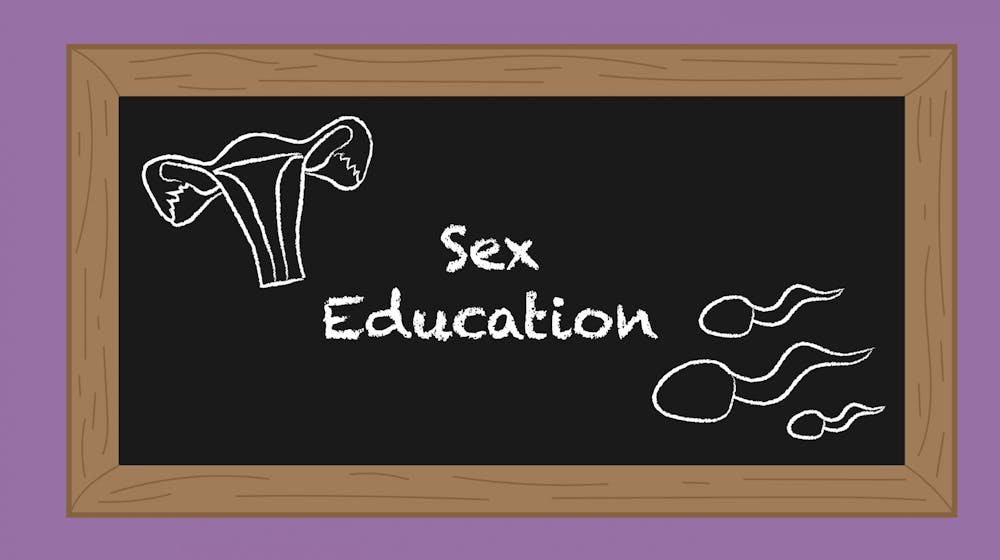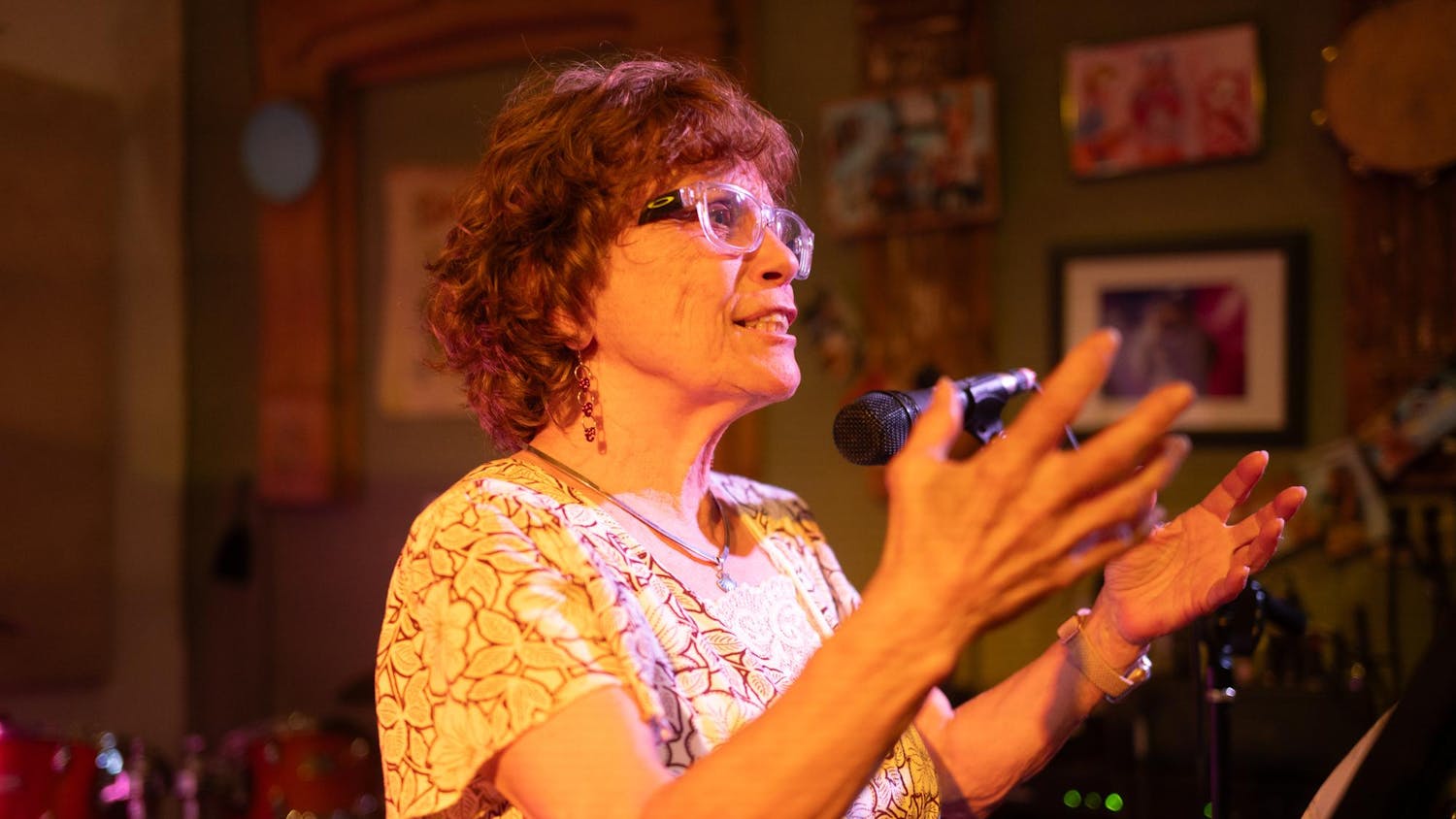When Sage Martin’s menstrual cycle unexpectedly began at school, she was scared.
The 12-year-old had her first period months prior, so she knew what was happening with her body. But without any pads on hand, she was forced to ask her teacher for help.
“Imagine not having that knowledge and finding out you can start your period at school,” Martin said. “It must be even more scary.”
A new Florida bill could make that a reality.
Rep. Stan McClain, R-Ocala, is the sponsor of House Bill 1069, which would also limit discussions of sexuality, reproduction and sexually transmitted diseases to grades six through 12. The bill passed through each of its committees and will be heard on the Florida House of Representatives floor March 30.
When presenting the bill to the House Education Quality Subcommittee March 15, McClain clarified that it would also prohibit conversations about menstruation, too. Democratic state Rep. Ashley Gantt asked McClain about young girls seeking period aid from teachers, to which he said he’d “be amenable to having a conversation about it.”
The bill wasn’t intended to penalize teachers, McClain added, and it was something he didn’t think about.
But Martin’s mom, Melanie Pennock, said she’s worried how the bill would impact teachers.
“We already have a mass exodus with educators leaving the workforce,” Pennock said. “I think it would just be another restraint that teachers are facing.”
Pennock, 46, is the head of school at Laniakea Montessori School in Gainesville, where her daughter is in seventh grade. Because it’s a private school, sex education would likely remain untouched — a luxury she doesn’t take for granted
In Florida, sex education isn’t mandated in schools, though information on teenage pregnancy is, according to Sex Education Collaborative, a collective of 25 organizations that advocate for holistic sex education. Parents are also allowed to opt-out their child from sex education lessons. In 2015, Florida ranked 47th in the nation for sexual health, according to State by State’s Safe Sex Index.
Parental rights are important in schools but only to a certain extent, Pennock said.
“I think there are ways to have parent involvement without banning education,” she said.
Forbes dubbed HB 1069 the “Don’t Say Period” bill, because it expands on the book banning taking place under the Parental Rights in Education, or “Don’t Say Gay,” bill passed in March 2022. If HB 1069 passes, materials used for sex education would have to be vetted by the Florida Department of Education.
“It feels wrong,” Martin said.
The average age a girl’s period starts is about 12, according to a study from the National Library of Medicine. But girls are experiencing puberty earlier than they used to, though scientists haven’t agreed there’s a definitive reason why.
As a result, menstruation education is crucial in younger classrooms, said Radha Selvester, chair of Alachua County’s Chapter for Days for Girls International.
“Kids that have cats and dogs learn a little bit about where babies come from,” she said. “That's just biology. It should not be left out.”
In grades where sex education is present, HB 1069 would classify reproductive roles as “binary, stable and unchangeable.” Students would also be taught “the benefits of monogamous heterosexual marriage.”
“The kids all have phones, and they have social media, and they're seeing all kinds of perversions of sexuality — things that are probably very corrupting,” Selvester, 64, said. “Just to talk about how your uterus is going to flush off the blood once a month, that's like nothing compared to what they've seen on TV or YouTube.”
Most parents don’t teach their kids about menstruation, said Johnelly Green, supervisor of health services at Alachua County Public Schools.
“It's a hard subject to talk about if you're not comfortable talking reality and body parts with your child,” she said.
Green, who was a nurse at High Springs Community School for six years, said it was extremely common for young girls to come to her wide-eyed, seeking help during their first period. In the older grades, she said, girls go to the clinic daily to get a pad.
“Not being able to talk about this in the school is going to be such a hindrance on the girls,” she said. “We won’t be able to help them during the day.”
If the bill passes, Green said, it’s likely nurses would send girls home if they needed help.
There’s also shame associated with periods that would be exacerbated if this bill passes, said Juhyung Seong, a 14-year-old freshman at Eastside High School and a volunteer at Alachua County’s chapter of Days for Girls International.
“There shouldn't really be any social stigma surrounding talking about just growing up in general,” he said.
Martin said she’s also noticed the stigma of periods, hearing her male peers comment about some of her other friends who’ve been unprepared with their periods at school. And this isn’t limited to Laniakea Montessori School.
“I learned that some parts of the world think the color red is disgusting because of that,” she said. “They think that the color red is horrid, gross, sinister — all the bad adjectives but just because of blood in periods.”
Contact Lauren at lbrensel@alligator.org. Follow her on Twitter @LaurenBrensel.

Lauren Brensel is a journalism sophomore and a metro reporter for The Alligator. In her free time, she's found going on mental health walks, being silly with friends, hiding from the public and reminding those around her that they did this song on Glee.






